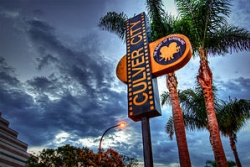Red light cameras in Culver City have been the subject of controversy prior to the revelation that the firm in charge of the city’s red light traffic enforcement program was involved in a reported bribery scheme in Chicago and possibly two other locations.
Reflex Traffic Systems is the subject of a federal investigation for allegedly paying for thousands of dollars in airline tickets to a transportation official in Chicago who was in charge of the city’s traffic enforcement program.
The company is also accused by federal authorities of giving a consultant more than $2 million who then was supposed to give additional funds to Chicago transportation authorities.
Four Redflex executives have resigned in the wake of the federal probe.
Culver City has a seven- year contract with Redflex. To date, the alleged bribery scandal has been confined to two other cities and Chicago.
Redflex spokeswoman Jody Ryan confirmed to the News that no incidents have been reported in Culver City.
Nearly a dozen residents wrote to the News last year after an article on red light traffic camera enforcement, the majority lambasting the cameras as well as the fines attached to them.
“I believe red light cameras are expensive, do not solve the traffic accident problems and are unconstitutional!” wrote Claudia Smith.
In California, fines are set at $100 but with courts cost can average as much as $489.
California is one of 21 states as well as the U.S Virgin Islands that permit the use of red light enforcement cameras. Nine prohibit their use.
Los Angeles and Houston decided to terminate their use of the cameras last year and Florida is on track to become the next major city to reverse their stand on the controversial traffic system.
Statistics on the effectiveness of the technology varies.
The Insurance Institute for Highway Safety, a nonprofit organization funded by the insurance lobby, conducted a study in 2012 in Arlington County, Va. and found significant reductions in red light violations at camera intersections one year after ticketing began.
Violations occurring at least 0.5 seconds after the light turned red were 39 % less likely than would have been expected without cameras, according to the study. Infractions occurring at least one second after were 48 percent less likely, and the odds of a violation occurring at least 1.5 seconds into the red phase fell 86%.
But a New Jersey Department of Transportation report revealed last year that accidents actually increased at intersections where the cameras are installed.
Cynthia Gibson of CKG Communication in Culver City says despite the fact that Culver City has not been implicated in the federal probe, details of the contract, how Redfex was chosen and why should be made available to the public if the scandal grows in scope.
“It’s always best to act in a transparent manner,” she said. “Culver City has a good reputation among its citizens and you don’t want to do anything to jeopardize that.”
The city of San Rafael in Northern California will be taking a look at the traffic enforcement company’s contract, even though no claims of wrongdoing have been lodged there. “This matter may be a factor in our decision to continue our contract. Overall safety effectiveness will of course be the overriding consideration,” Mayor Gary Phillips told the Marin Independent Journal.
And New Jersey officials are also considering ditching their Redflex due to the Chicago scandal.
Gibson says city officials would be prudent to consider reviewing the contract with Redflex in light of the allegations in Chicago. “As a preemptive strike, they should at least take a look at the contract and examine what provisions it has,” she suggested.
Even though no reports of bribery have surfaced in Culver City, being associated with a firm involved in a federal investigation can put the city under a microscope. “Often perception can trump reality,” Gibson noted.
Culver City Police Chief Donald Pederson did not return calls for comment on the city’s enforcement system.













